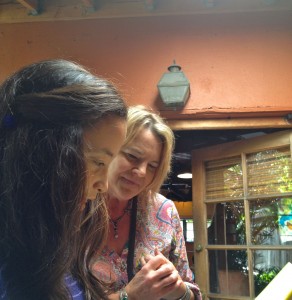
What characterizes the quality of a great school is a complex puzzle. The pieces can have different shapes at schools of differing philosophies and missions, but there are a few key ingredients that must be present, regardless of their form. One of the most important elements involves the nature of the relationship between the teachers and the students. It doesn’t matter what grade, discipline, or gender we are talking about – each school’s culture reflects its own way teachers and students interact.
One indicator of the school’s formality (or lack thereof) is set by the way teachers and students address each other. Every school sets a tone regarding how faculty and students relate. There are schools that have quite formal structures that define relationships between faculty and students. Other schools are much less formal and you might observe a student talking to a teacher more like a peer than an authority figure. Both formality and informality are demonstrated by either a practice where students call teachers by their first names or the formal alternative, using sir names for teachers and administrators.
Another defining characteristic is whether there are handshakes or hugs. Observing how teachers and students interact is an important way to determine if the school is a good fit for your family and your child. If you’re offended by students who call their teacher “Jennifer,” than you may want to look at more traditional schools. If you want a school where a teacher kneels down and asks a kid who has fallen down if they are ok, rather than a quick “get up buddy, you’re fine,” you need to look for teacher/student interactions that are nurturing and warm. At the secondary school level, if you want your child to consider their teacher a friend or a “cool” mentor, keep an eye out for this type of less formal student/teacher interaction.
When you’re touring schools or talking to other families about a school, look beyond the classroom to the engagement between teachers and their students. Try to observe informal conversations happening at the school, see where teachers spend time with students on the playground or at lunch, and whether teachers make themselves available informally in their classrooms for homework help or questions. What is important from the parental perspective is to observe these relationships, or talk to families involved in the school you are considering, and try to imagine how your child will feel in various kind of school structures.
Ask yourself if your child will be known, accepted, and included. This goes beyond the name, grade and even interest level of a teacher knowing your kid. You want to feel confident that your child’s teachers will understand your child – strengths, weakness, learning style and the essence of who your child is. When a child feels known and accepted, he/she has the freedom to explore, ask questions, test situations and take risks while feeling confident that she/he has a safety net of understanding that will support these efforts and guide their growth. While this is a subtext of the first issue of safety, this requires a personal level of relationship that empowers students beyond the basic issue of security. Your child can be known, accepted and included in a traditional school where structure and formal teacher/student relationships are the practice or in a less formal school culture. You need to know which type of school culture your child will flourish within. It’s worth noting that the school’s culture will also be reflected in its sports programs, art, music, how discipline is handled and other aspects of the school, not just the time your child spends in class.
We all have challenges that arise, but what we hope for our children is that they are placed in an environment that will deal with inevitable situations and difficult issues in a way that supports the emotional growth of our children and reflects the values that are consistent with those of our families.
The most important aspect of your child’s relationship with their teacher, whether formal or informal, is that your child feels known and accepted.
Anne Simon is the co-author of Beyond The Brochure: An Insider’s Guide To Private Elementary Schools In Los Angeles. She has more than 30 years of experience as a private school head of school, admissions director and teacher.